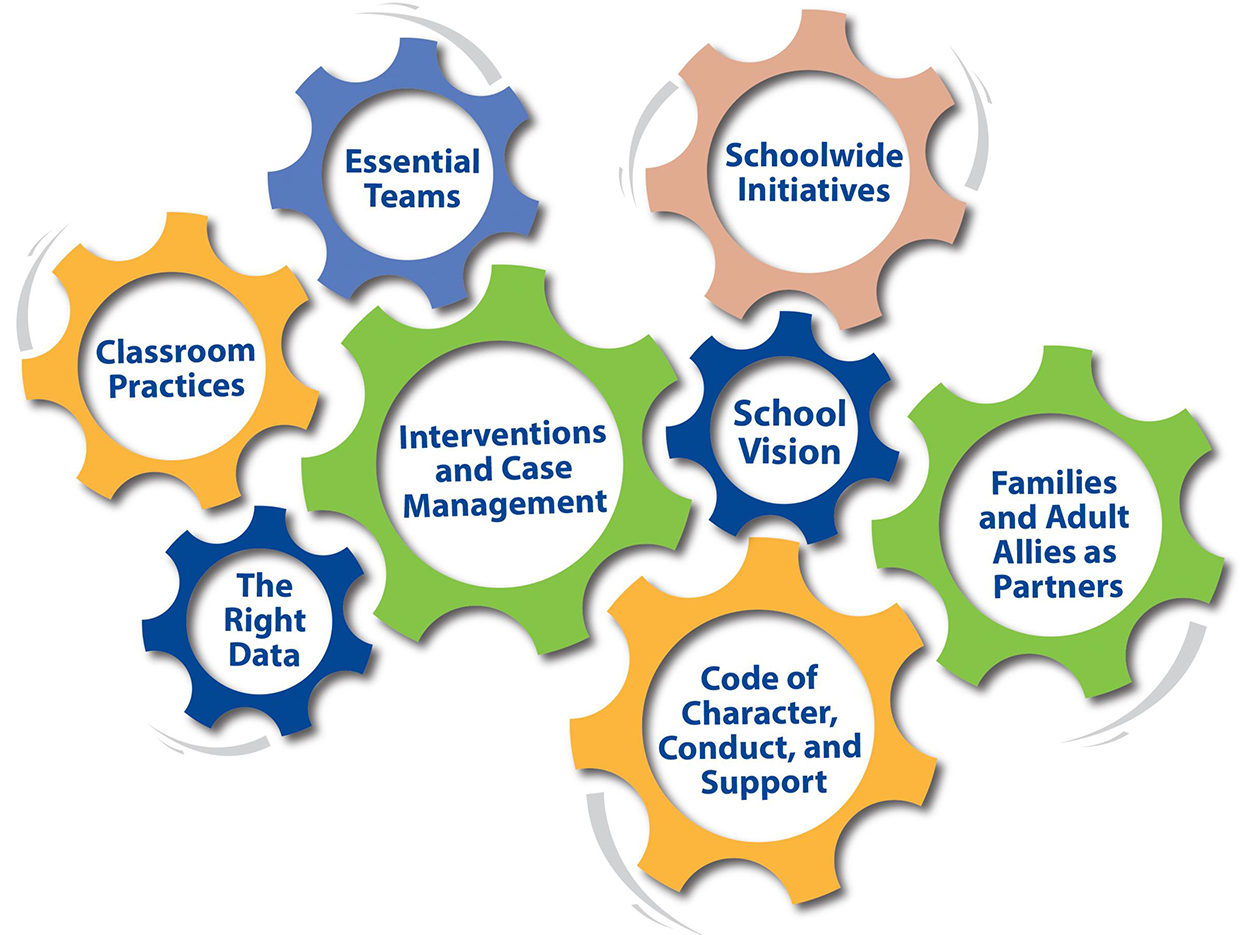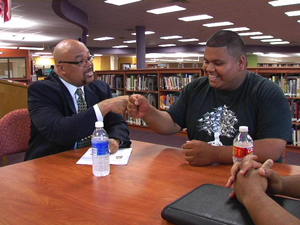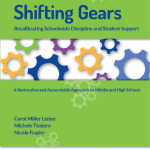Our former Code was short and focused only on discipline and consequences. Our new Community Code of Character, Conduct, and Support is now comprehensive and a pathway to restorative and equitable learning.
Chapel Hill (NC) educator and Code Task Force member
There is an urgency across the country to reduce exclusionary and inequitable punitive sanctions that result in disparate impact across student groups. To achieve this, districts are working to recalibrate systems and replace ineffective policies. At the same time, schools are seeking to build cultural competency and tackle conscious and unconscious bias, as well as increase their capacity to deliver restorative and standardized interventions that strengthen students’ social and emotional competencies.

An effective Code of Character, Conduct, and Support is a critical part of systems change. This kind of Code states every student’s right to an education in a safe, civil, and caring community across all schools and all grade levels. It serves as a guide to character, good conduct, and citizenship, and provides the tools for helping students understand, appreciate, and fully commit to districtwide rules and expectations that shape an equitable and inclusive learning culture. The essential qualities that inform a visionary Code are: accountable, restorative, equitable/fair, respectful, and viable.
When recalibrating a Code, Engaging Schools partners with districts to move through four phases.
Phase I: Code Assessment
Our Engaging Schools Code Team conducts a close examination of the historical and current disciplinary policies, procedures, and practices; perceptions of school climate; the dominant norms, beliefs, and assumptions that inform the district/school culture; systemic factors that influence students’ educational opportunities and outcomes; and staff attitudes and beliefs.
Outcome: A data report and workshop to help districts target the areas of their Code in need of recalibration
Phase II: Recalibration of the Code
Engaging Schools Schools partners with the district and its multiple constituencies to define the overarching goals and core values and beliefs that drive their Code vision. We help these stakeholders identify rules, rights, and responsibilities for students, families, and school and district staff, formulate more discrete levels of concerns and violations, and more standardized consequences. Restorative interventions are aligned with assigned consequences that help students reflect on their behavior, problem-solve, repair harm, and learn new skills to get back on track for school success. The process prioritizes universal classroom Tier One practices that increase academic engagement and equitable treatment to create a classroom culture of care and reduce disciplinary incidents.
Outcomes: Development and publication of a revised Code of Character, Conduct, and Support
Phase III: Orientation to the Code
Engaging Schools partners with district leaders to design a process that provides all stakeholders in the district with an initial orientation to the recalibrated Code. Code Teams are created at each school and supported to provide an initial session that focuses on a tour of the Code, highlights of major shifts in policies and practices, roles and responsibilities of staff to support implementation of the Code, a data profile to be studied to assess impact, and a preview of the professional learning plan for launching and implementing the Code.
Outcomes: An orientation process; Code Teams created and supported in providing the initial orientation sessions
Phase IV: Implementing the Code
Engaging Schools co-designs a comprehensive and coherent professional learning plan with district and school leaders to implement the Code districtwide. A series of professional learning modules are designed and delivered to all staff over the course of a two-year period. This intentional and scaffolded professional learning plan builds a shared understanding and galvanizes the commitment to implement the Code with fidelity and integrity. Parent onboarding sessions and student lessons are also implemented to build a shared understanding of the Code and of their respective roles and responsibilities. Engaging Schools also collaborates with key district leaders to build an infrastructure and effective accountability systems to assess the impact of Code implementation and use the data to inform ongoing refinements to the systems, structures, policies, and practices of the Code.
Outcomes: A professional learning plan and modules; infrastructure and accountability systems
Implementation of a Code of Character, Conduct, and Support produces significant results. Please click here for an impact summary of Code implementation in the Syracuse City School District in central New York.
To access this webpage in a downloadable PDF flyer format, please click here.

“We worked with Engaging Schools to recalibrate our code of conduct. It has served as a north star for our district and unified our schools to ensure that students are supported academically, behaviorally, and emotionally.”
A district leader


 Shifting Gears: Recalibrating Schoolwide Discipline and Student Support
Shifting Gears: Recalibrating Schoolwide Discipline and Student Support  Engaged Classrooms: The Art and Craft of Reaching and Teaching All Learners
Engaged Classrooms: The Art and Craft of Reaching and Teaching All Learners